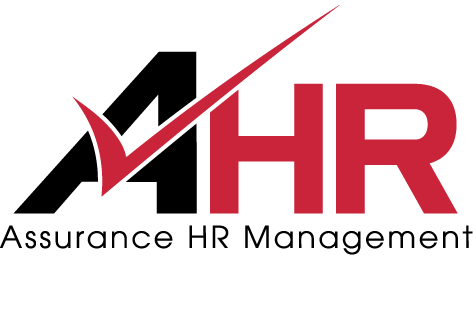Preparing for Workplace Changes After the Federal Election
With the federal election approaching, businesses across Australia must prepare for potential Australian workplace law changes that could reshape the workplace landscape. Specifically, depending on the outcome, employers may soon need to adapt to new compliance requirements, shifts in workforce management, and changes to flexibility arrangements.
Both major parties—the Coalition and Labor—have outlined significantly different industrial relations (IR) policies. Therefore, understanding these proposals now can help businesses prepare early, avoid compliance risks (refer to the Fair Work Ombudsman website for current standards), and continue operating smoothly, regardless of the political result.
At Assurance HR Management (AHR), we’re keeping a close eye on these developments to ensure our clients are fully supported. Here’s a breakdown of the major proposed changes and what they could mean for your business.
The Coalition’s Proposals: A Return to Employer Flexibility?
If elected, the Coalition has signaled it would seek to unwind many of the Labor Government’s recent IR reforms. Their policies are largely aimed at increasing employer flexibility, curtailing union power, and encouraging a return to more traditional working arrangements.
-
Redefining Casual Employment
One of the Coalition’s key proposals is to reinstate the previous definition of casual employment. Under Labor’s reforms, the practical reality of the working relationship must be considered when determining whether a worker is genuinely casual. The Coalition, however, proposes to return to a simpler test: a casual engagement would be characterized solely by the absence of a “firm advance commitment” to ongoing work.
If implemented, this could reduce the administrative burden on businesses reliant on casual labour and limit disputes over casual conversion rights. For industries that rely heavily on flexible workforces, this change could offer welcome certainty.
-
Repealing the Right to Disconnect
The Coalition also intends to repeal Labor’s “right to disconnect” laws, which give workers the ability to refuse work-related communication outside of hours unless it is unreasonable. This repeal would provide greater flexibility for businesses needing to contact staff after hours, particularly in fast-moving industries where responsiveness is crucial.
-
Encouraging a Return to the Office
The Coalition has voiced strong support for a return-to-office policy, particularly for segments of the public sector. While this proposal would not immediately apply to private businesses, it could influence broader cultural expectations around flexible and remote working.
Employers who have built hybrid or remote-first models to attract and retain talent may find future recruitment and retention strategies impacted by a societal shift back to in-office expectations.
-
Cracking Down on Union Influence
The Coalition is also targeting union influence, proposing anti-racketeering laws, the re-establishment of the Australian Building and Construction Commission (ABCC), and the deregistration of the CFMEU. For industries heavily affected by union negotiations and disputes, this could translate into fewer industrial disruptions—but may also escalate tensions during bargaining periods.
Labor’s Proposals: Strengthening Worker Protections?
On the other hand, if Labor retains government, businesses should prepare for further enhancements to worker rights and additional compliance requirements, representing significant Australian workplace law changes.
-
Banning Non-Compete Clauses
Labor proposes to ban non-compete clauses for workers earning under $175,000 annually. While aimed at promoting worker mobility, the ban may expose businesses to risks around intellectual property and the movement of key skills to competitors. Employers will need to find new ways to protect sensitive business information and client relationships.
-
Prohibiting Other Anti-Competitive Employment Practices
Labor is also planning to outlaw:
- Wage-fixing agreements: Informal deals between businesses to cap wages and conditions.
- No-poach agreements: Arrangements preventing the hiring of competitors’ staff.
These changes aim to level the playing field for workers but could significantly impact how some businesses approach workforce planning and industry collaboration.
-
Casual Conversion Rights
Coming into effect from 26 February 2025, casual workers will have greater rights to request permanent employment. Businesses must ensure they are managing casual contracts carefully and providing conversion opportunities when required. Failing to comply could expose employers to significant penalties.
-
Right to Disconnect
From August 2024, the “right to disconnect” laws apply to businesses with more than 15 workers. Small businesses have until August 2025 to comply. Employers must now establish clear policies and practices around after-hours communication to avoid breaches and potential claims.
-
Annual Wage Review: Push for Above-Inflation Wage Increases
Labor is advocating for minimum wage increases above the inflation rate. If the Fair Work Commission agrees, businesses with award-covered or minimum-wage employees may face significant increases to their labour costs from July 2025.
-
Changes to the Small Business Definition
There are growing calls, particularly from independents and employer groups, to lift the definition of “small business” from 15 employees to 25. While not formally adopted by either major party yet, this could change future compliance obligations if introduced.
-
Introduction of Paid Reproductive Leave
Discussions continue around amending the Fair Work Act to include 12 days of paid reproductive leave annually and recognising menopause as grounds for requesting flexible working arrangements. While not yet a confirmed policy of either major party, this proposal could gain traction in the new parliament.
Preparing Your Business for Australian Workplace Law Changes
Regardless of which party forms the government, it is clear that businesses need to remain agile and ready to respond to legislative changes. A few key steps to consider:
- Review casual employment contracts to ensure compliance with any future definitions.
- Audit employment agreements for restraint and non-compete clauses.
- Implement right-to-disconnect policies ahead of commencement dates.
- Prepare for potential wage increases in the next Annual Wage Review.
- Reinforce confidentiality and IP protections through policies and culture, particularly if non-compete clauses are banned.
- Stay updated on policy developments, especially around emerging issues like reproductive leave and small business definitions.
At Assurance HR Management, we assist businesses in navigating these complex IR landscapes. Whether reviewing contracts, updating policies, or representing you in employment matters, our team ensures your business is compliant, prepared, and protected against upcoming Australian workplace law changes.
Need help preparing for the potential workplace changes ahead? Contact AHR today —we’re the Workplace Problem Solvers!










